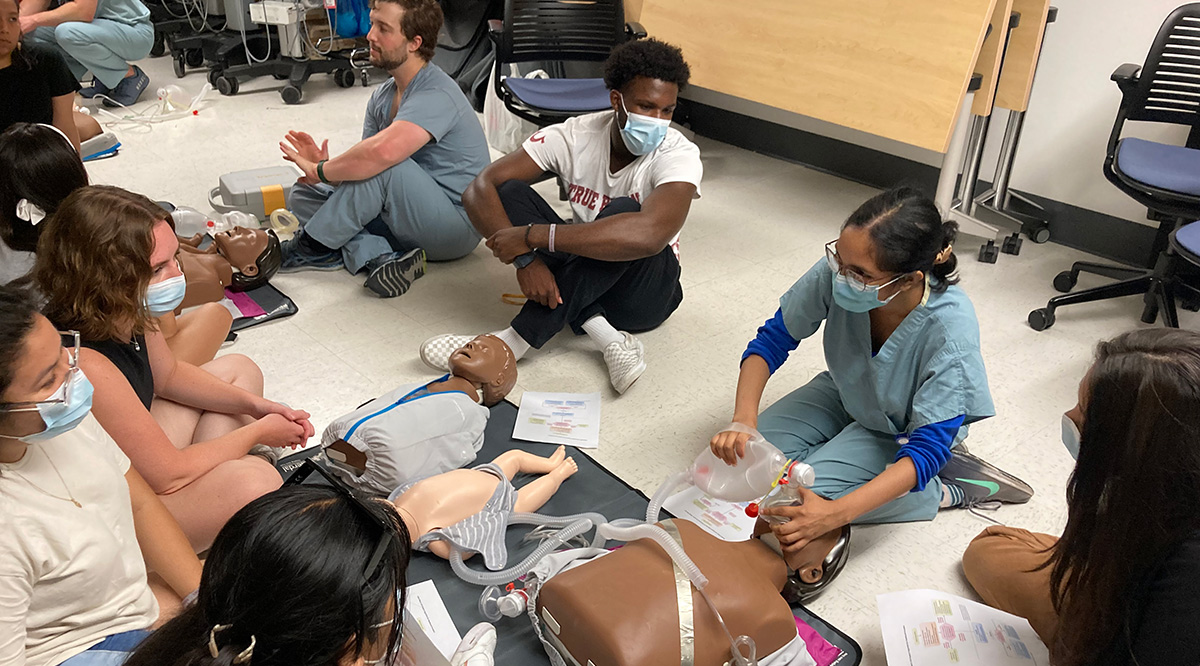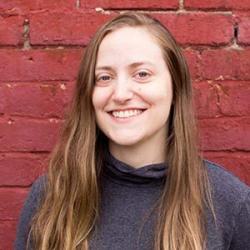
Taison Bell, MD, MBA, knew from the age of 3 that he wanted to be a physician, despite the fact no one in his family in central Virginia had ever graduated from college, let alone medical school.
“College can be a very disconcerting place if you don’t have advantage and don’t know what to expect,” says Bell, who is now an associate professor of medicine and vice chair for faculty affairs in the department of medicine at the University of Virginia (UVA) School of Medicine in Charlottesville.
He applied and was accepted to UVA for college and, during one summer, attended a free program at Columbia University Vagelos College of Physicians and Surgeons aimed at helping students like him who had fewer resources to prepare for medical school. The program he attended, the Summer Health Professions Education Program (SHPEP), continues today and is overseen by the Association of American Medical Colleges (AAMC).
“That was 100% the reason I was accepted to medical school [at Columbia],” Bell says. “The barriers I had were alleviated [by providing housing and a stipend, and] I was surrounded by like-minded people with similar backgrounds as me and had the same dream who needed to have someone believe in them.”
Now, Bell leads a similar program at his own institution, the Summer Medical Leadership Program, which provides disadvantaged students with Medical College Admissions Test (MCAT®) preparation courses, clinical shadowing, mentorship, and a leadership seminar series, among other resources and support for students hoping to pursue a career in medicine.
UVA’s summer program is one of dozens offered at medical colleges across the United States designed for students from high school to college, and some postgraduates, to expose them to the medical school experience, help them to bolster their medical school applications, and provide them with support and mentorship that they otherwise would be unlikely able to access.
SHPEP is a six-week summer program for college freshmen and sophomores who come from an economically or educationally disadvantaged background or have a demonstrated interest in underserved populations. The SHPEP programs are hosted at 12 academic health centers, are free for the students who are accepted, and include a stipend for students, which, last year, was increased to $1,000.
After the U.S. Supreme Court ruled in summer 2023 that the use of racial identity in college admissions decisions was unconstitutional, leaders in medical education have worried that efforts to increase diversity in the medical field could be curtailed, AAMCNews reported.
But these summer pathway programs are among the tools that medical schools can use to level the playing field for students who come from groups that are underrepresented in medicine.
Sponsored by the Robert Wood Johnson Foundation for 35 years, SHPEP outcomes include over 9,000 alumni earning degrees in medicine and dentistry, and more than 5,500 alumni earning master's and doctoral degrees across various professions. The federal government also offers critical longstanding financial support for similar programs through the Health Resources and Services Administration's (HRSA) Title VII programs.
“Pathway programs, like SHPEP, are mutually beneficial for students and the host institutions,” says Norma Poll-Hunter, PhD, senior director of equity, diversity, and inclusion at the AAMC and principal investigator for the SHPEP programs. “By offering exposure to talented students who are diverse and often from less-resourced colleges and universities, these programs help change mindsets and address potential biases of faculty and leaders about what institutions and communities can be engaged and recruited for medical school.”
While the Feb. 5 application deadline for SHPEP’s 2024 programs has passed, several institutions are still accepting applications for this summer. Here is a database of summer programs across the nation compiled by the AAMC and a few examples:
University of Miami — Miller School of Medicine
Application deadline: March 1
The University of Miami Miller School of Medicine offers several summer programs, including programs for high school students, college students interested in research, MCAT® preparation, and intensive medical school preparation called the Medical Scholars Pathway Programs.
“These programs have a rich legacy,” says Nanette Vega, EdD, MA, assistant professor for medical education and assistant dean for belonging and inclusive excellence at the Miller School of Medicine, who leads the summer programs. “Hundreds of students across the country have gone on to — not only fulfill the dream of being accepted to college — but to medical school.”
The MCAT® preparation program is fully remote and has sessions from June 3 to July 19. The medical school preparation program is one week of intensive, on-site programming and provides housing as well as covers transportation costs to Miami. The seven-week, on-site, research-focused program provides housing and transportation costs. All of the programs are free for students who are accepted.
In her 14 years overseeing the programs, Vega says she’s seen some alumni go from attending summer programs as undergraduates to returning as medical residents. She recently received an email from a graduate of the program who is now an attending physician recommending their mentee.
One important tenet of the program is allowing students to see and interact with physicians who once were in their position, whether that means they were first in their family to attend college, or maybe first in their family to grow up in the United States.
“You can’t be what you can’t see,” she says, explaining that students in the program enjoy “Thursday Talks with Docs” sessions that bring together diverse panels of physicians to talk about their own journeys into medicine, including the challenges and setbacks they faced.
“There are so many stories that really speak to the students,” Vega says. “They see themselves in these stories and it gives them that encouragement.”
Vega says that the programs are very competitive, receiving more than 100 applicants for 25 spots in the program for pre-meds, but that the faculty and administrative staff involved in the program are committed to ensuring all students have information and tools to help them on their journey to medical school. This is why they offer a free workshop for applicants who don’t get into the program to help them take the next steps.
University of California, Los Angeles — David Geffen School of Medicine
Application deadline: March 1
UCLA offers a free, six-week Pre Med Enrichment Program (PREP) for 40 juniors, seniors, or recent graduates over the summer that starts with two weeks of virtual MCAT® prep and four weeks of intensive, in-person programming to prepare students for medical school. There are no application or tuition costs and housing, meals, and stipends are available to some students. Among the activities and educational opportunities for students is a research project on health disparities that the students present at the conclusion of the program.
Jennifer Lucero, MD, MA, the associate dean for admissions at UCLA David Geffen School of Medicine, who has led the summer medicine programs since 2020, says that she wanted to be involved with this work as a way to pay it forward after she started her medical career without the supports these programs provide.
“I am a first-gen to college and my family was economically disadvantaged and underrepresented in medicine. As I was embarking on my journey to medical school, it was a long, circuitous route. Many times, I thought, ‘I’m not good enough to do this,’ and ‘I don’t belong here,’” she says. “I see myself in these students. I know that they’re hungry for this information and [otherwise are] not having access to it.”
University of Virginia — School of Medicine
Application deadline: March 1
UVA’s Summer Medical Leadership Program recently expanded the number of students accepted from 30 to 40. The students who are accepted to the six-week program receive free housing as well as a modest living and food stipend.
“The best ideas when it comes to how to evolve our health care system will have to come from diverse perspectives that end up in leadership positions,” Bell says. “I’m a physician here [at UVA] and do many things, [but] this program is by far the most important thing I do as far as future impact.”
To learn more about summer programs in the health professions, visit the AAMC database of resources.
